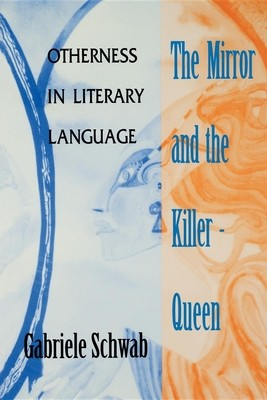
- We will send in 10–14 business days.
- Author: Gabriele Schwab
- Publisher: Indiana University Press
- ISBN-10: 0253210518
- ISBN-13: 9780253210517
- Format: 15.4 x 23.2 x 1.7 cm, minkšti viršeliai
- Language: English
- SAVE -10% with code: EXTRA
Reviews
Description
"The book not only confirms the high ethical stakes in informed contemporary reading; it offers a rare readerly pleasure in . . . exploring the wider cultural significance of gender and the body and their narrative representation." --Henry Sussman, SUNY-Buffalo
Gabriele Schwab revitalizes debates about literature's cultural function by exploring literary experience as an encounter with otherness. Drawing on literary theory, anthropology, and psychoanalysis, Schwab contends that literature facilitates contact with cultures that may seem foreign to us. At the same time, literature can render the familiar strange, and foreground what a culture tends to repress. At its best, literature challenges the very boundaries of the culture from which it emerges.
Schwab's readings of writers such as Hawthorne, Faulkner, Joyce, Lewis Carroll, Djuna Barnes, Marguerite Duras, and John Cage demonstrate the centrality of aesthetics and the literary to studies of otherness and cultural contact.
EXTRA 10 % discount with code: EXTRA
The promotion ends in 21d.22:28:15
The discount code is valid when purchasing from 10 €. Discounts do not stack.
- Author: Gabriele Schwab
- Publisher: Indiana University Press
- ISBN-10: 0253210518
- ISBN-13: 9780253210517
- Format: 15.4 x 23.2 x 1.7 cm, minkšti viršeliai
- Language: English English
"The book not only confirms the high ethical stakes in informed contemporary reading; it offers a rare readerly pleasure in . . . exploring the wider cultural significance of gender and the body and their narrative representation." --Henry Sussman, SUNY-Buffalo
Gabriele Schwab revitalizes debates about literature's cultural function by exploring literary experience as an encounter with otherness. Drawing on literary theory, anthropology, and psychoanalysis, Schwab contends that literature facilitates contact with cultures that may seem foreign to us. At the same time, literature can render the familiar strange, and foreground what a culture tends to repress. At its best, literature challenges the very boundaries of the culture from which it emerges.
Schwab's readings of writers such as Hawthorne, Faulkner, Joyce, Lewis Carroll, Djuna Barnes, Marguerite Duras, and John Cage demonstrate the centrality of aesthetics and the literary to studies of otherness and cultural contact.


Reviews